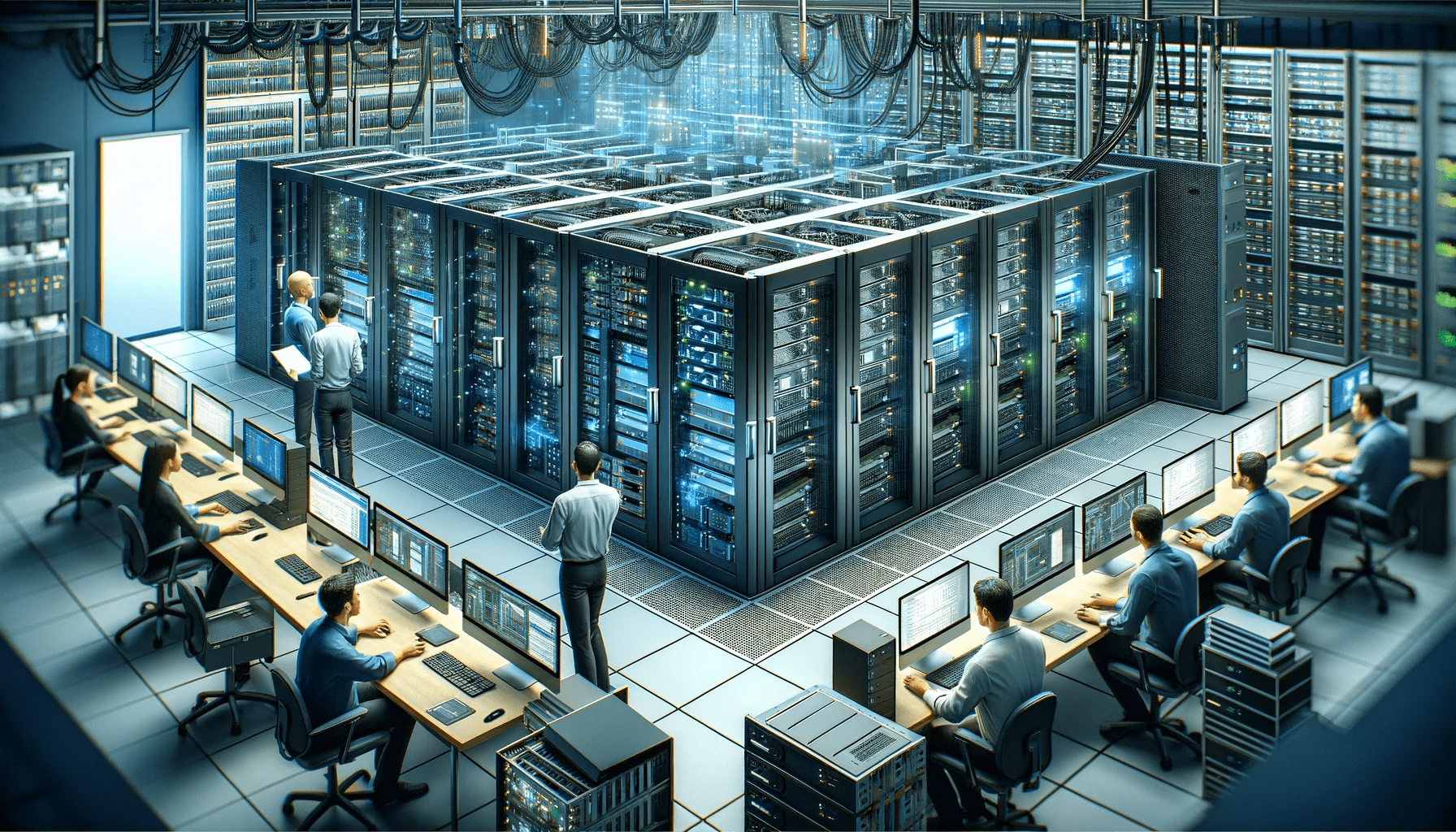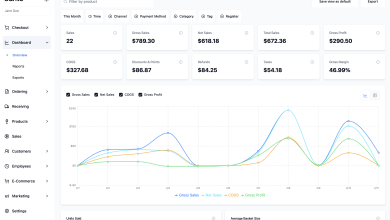
Artificial Intelligence (AI) is transforming industries, driving innovation, and creating new opportunities. However, the success of AI initiatives heavily depends on the supporting infrastructure. Robust infrastructure is crucial for AI to function efficiently, deliver accurate results, and scale effectively. This article explores the importance of robust infrastructure for AI, highlighting key components and considerations.
The Role of Infrastructure in Artificial Intelligence
Data Storage and Management
AI depends on vast amounts of data to learn and make decisions. Efficient data storage and management systems are essential for handling this data securely and accessibly. Robust infrastructure ensures data is stored for quick retrieval and processing, which is vital for AI algorithms.
Computing Power
AI applications, particularly those involving deep learning, require significant computing power. High-performance computing (HPC) resources, including GPUs and TPUs, are essential to handle the complex calculations and large datasets that AI demands. A strong infrastructure provides the necessary computing power to run AI models efficiently, often leveraging used Dell servers and other reliable hardware to optimize costs.
Networking and Connectivity
For AI systems to communicate and share data across various platforms and devices, robust networking and connectivity are essential. This ensures that AI models can be trained and deployed seamlessly across different environments, from local servers to cloud-based platforms. High-speed, reliable network connections are critical for minimizing latency and ensuring real-time data processing.
Key Components of a Robust AI Infrastructure
Hardware
State-of-the-art servers and data centers form the backbone of robust AI infrastructure. These facilities must be equipped with the latest technology to support the intensive computational requirements of AI. Redundant systems and backup power supplies are necessary to ensure continuous operation and minimize downtime.
Graphics Processing Units (GPUs) and Tensor Processing Units (TPUs) are specialized hardware designed to accelerate AI computations. They handle the parallel processing needed for deep learning algorithms, making them indispensable for modern AI applications.
Software
Robust AI infrastructure requires advanced software frameworks and libraries to develop, train, and deploy AI models. Popular frameworks like TensorFlow, PyTorch, and Keras offer extensive functionalities that streamline the AI development process.
The operating system and middleware play a critical role in managing hardware resources, facilitating communication between different components, and ensuring security. They provide a stable and secure environment for AI applications to run efficiently.
Cloud Services
Cloud services offer unparalleled scalability, allowing organizations to expand their AI infrastructure as needed without significant upfront investments. This flexibility is crucial for handling varying workloads and growing data volumes.
Leveraging cloud services helps organizations reduce the costs associated with maintaining physical hardware and infrastructure. Pay-as-you-go models offered by cloud providers enable efficient resource allocation and cost management.
The Importance of Data Quality and Security
For AI models to produce accurate results, the quality of the data used for training and inference is paramount. Robust infrastructure includes mechanisms for data validation, cleansing, and preprocessing to ensure that the data fed into AI models is accurate and relevant.
With the increasing use of AI in sectors like healthcare, finance, and government, protecting sensitive information is crucial. Robust infrastructure incorporates advanced security measures like encryption, access controls, and regular audits to safeguard data from unauthorized access and breaches.
Best Practices for Developing a Robust AI Infrastructure
- Investing in High-Performance Hardware: To support the demanding requirements of AI, investing in the latest high-performance hardware is essential. This includes servers, GPUs, and networking equipment designed to handle intensive computational tasks.
- Leveraging Cloud Services: Utilizing cloud services can provide the scalability and flexibility needed for AI projects. Cloud platforms like AWS, Google Cloud, and Azure offer a wide range of AI tools and services that can accelerate development and deployment.
- Implementing Strong Security Measures: Security should be a top priority in AI infrastructure. This involves using encryption, secure access protocols, and regular security assessments to protect data and ensure compliance with regulations.
- Ensuring Data Quality: Implementing rigorous data management practices to ensure data quality and integrity is crucial. This includes data validation, cleansing, and regular updates to maintain data relevance and accuracy.
- Building a Skilled Team: Having a team of skilled professionals, including data scientists, engineers, and IT specialists, is vital for developing and maintaining a robust AI infrastructure. Continuous training and development are essential to keep the team updated with the latest trends and technologies.
Challenges in Building Robust AI Infrastructure
High Costs
Building and maintaining a robust AI infrastructure involves significant financial investment. TAI projects require expensive hardware like GPUs and TPUs for complex computations. Setting up and maintaining advanced data centers with reliable power and security is also expensive. Hiring skilled professionals like data scientists and AI engineers, who command high salaries, adds to the costs. These costs can be too high for small and medium-sized businesses to invest in AI.
Rapid Technological Advancements
AI is characterized by rapid and continuous advancements. New technologies emerge often, promising better performance. Organizations struggle to keep up, needing to invest in the latest and constantly update their workforce’s skills. Today’s infrastructure can quickly become outdated, requiring frequent upgrades. To stay competitive, AI infrastructure must adapt to new technologies without significant changes.
Data Privacy and Compliance
Incorporating AI into business operations means handling large amounts of data, some of which is sensitive. This demands robust data protection measures to comply with regulations like GDPR and HIPAA. Strong infrastructure must include data encryption, access controls, and regular audits to prevent breaches. Organizations need clear policies on data collection, storage, and sharing to avoid severe penalties and reputational damage.
Conclusion
Building a robust infrastructure is essential for leveraging the full potential of AI. By investing in high-performance hardware, utilizing scalable cloud services, implementing strong security measures, and ensuring data quality, organizations can overcome the challenges associated with AI infrastructure. As AI continues to evolve, maintaining a robust and adaptable infrastructure will be key to staying competitive and innovative in the ever-changing technological landscape. By addressing common concerns and providing practical solutions, this blog aims to guide organizations in their journey toward building a robust AI infrastructure.
Frequently Asked Questions
- What are the challenges in building a robust AI infrastructure?
Challenges include high costs, rapid technological advancements, and the complexity of ensuring data privacy and compliance. Organizations need to invest in high-performance hardware, stay updated with the latest technologies, and implement strong security measures.
- How can organizations ensure the security of their AI infrastructure?
Organizations can ensure security by implementing encryption, secure access protocols, and regular security assessments. It’s also important to comply with data privacy regulations and protect sensitive information from unauthorized access.
- How can cloud services benefit AI infrastructure?
Cloud services offer scalability and cost-effectiveness. They allow organizations to expand their infrastructure as needed and reduce the costs associated with maintaining physical hardware. Cloud platforms also provide a range of AI tools and services that accelerate development and deployment.
Key Takeaways
- Strong infrastructure is essential for AI to function efficiently and deliver accurate results.
- High-performance hardware, advanced software frameworks, reliable operating systems, and scalable cloud services are crucial for a robust AI infrastructure.
- Cloud services provide scalability and cost-effectiveness, offering a flexible and efficient way to manage AI workloads.
- High costs, rapid technological advancements, and data privacy compliance are significant challenges in building robust AI infrastructure.
- Implementing strong security measures, including encryption and secure access protocols, is essential to protect AI infrastructure and ensure compliance with regulations.









